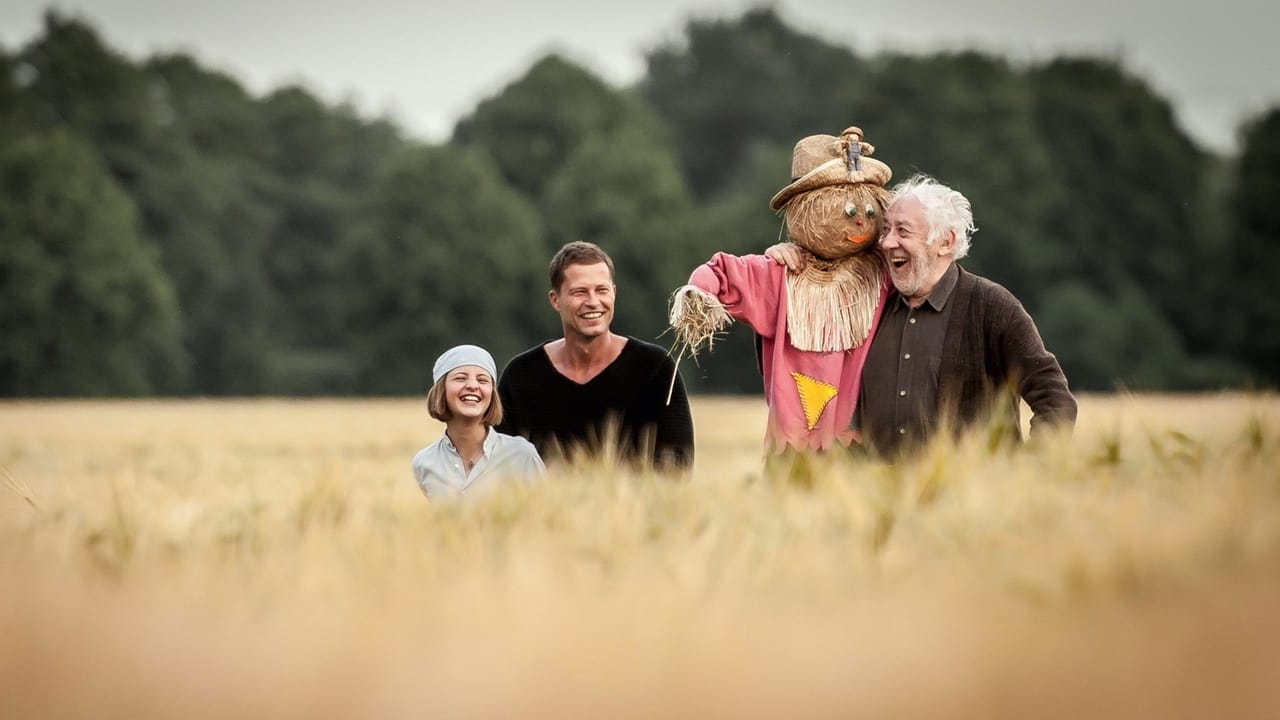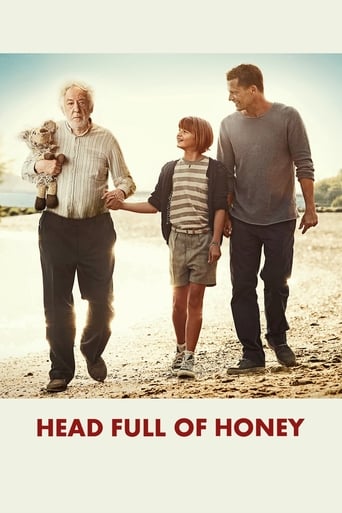

A beautifully filmed but ultimately disappointing film. The first hour, watching an utterly clueless couple in complete denial about the mental state of the husband's father isn't funny - it's painful and disturbing. The saving grace is that this is probably how so many people really do try to deal with a loved one with dementia. Apparently no one in the family knows how to look up more information on the Internet about dementia and caregiving. No idea whatsoever as to why the husband stays with the wife, who is completely unsympathetic. The grand-daughter and grandfather are charming - but that no one intervenes when, say, they see this young child removing this old man's pants on a train is just unbelievable. The film is worth watching to explain to someone what dementia can look like, but it is NOT a good film for explaining how to care for someone with such (except to say "Here's what NOT to do.").
... View More...as if a dementia patient can give funny replies.... ...as if a dementia patient without a clue just do things - like making coffee, clipping the hedge.... ...as if a dementia patient really have remorse... ...as if a dementia patient understands (subtle) humour... as if...I could go on.The film crew has no idea what it's like to care for a patient with dementia, to live with that person, to master everyday life. Alzheimer has been glorified lately. That's not right. I like the idea of awareness but not glorification. The portrait family is naive and reckless. There is nothing funny about ignorant behaviour. The only highlight of that movie is the pediatrician, explaining what Alzheimer is like, what the patient truly needs....My resume, disappointing like most German movies. It's all about sex....just sex.
... View MoreI would like to talk about two characters and the way their attitude is being dangerously idealized in the movie:First of all, Tilda, the small child almost takes over the responsibility of her parents, taking her grandfather to a trip abroad. She witnesses how her grandpa slowly loses the capability of leading his own life and this is simply not something that a child can handle psychologically. For a child to carry such parental responsibilities is being referred to as a severe trauma in psychology and it shouldn't be idealized in a movie. Moreover, when she takes off with her grandpa, interestingly no one ever wonders where she may be and what may happen to them. So instead of being deeply worried for her, Niko and Sarah brush up their sex life. Really?!Secondly, Sarah, Niko's wife is portrayed as a very unpleasant character and in the movie, this is tied to the fact that she doesn't want her husband's father to live with them. At the end, where the character transforms into an ideal (!) woman, she quits her job to look after Amandus and to spend more time with her daughter. This is nothing but a gender stereotype being reinforced in a very emotionally abusive manner. Again, such experiences have caused and are causing many women in the world to have traumatic experiences when it comes to having a family and wanting to realize themselves. I was very disappointed to see so many gender stereotypes being reinforced in the movie. The people of this world have endured enough traumas and they should not be idealized in any way, let alone in a movie by Til Schweiger that is guaranteed to reach millions of people.
... View MoreMaking a movie about Alzheimer's disease and how it affects families - that's difficult stuff, and if you want to include comedy aspects, your task doesn't get easier. The result - "Honig im Kopf" - is really better than it has any right to be, given those difficulties - it's touching, funny and perfectly paced. Opinions about Til Schweiger's acting ability might be divided; his talent as director and narrator can not be doubted after this project.The biggest part of the story centers on 11-year old Tilda and her granddad Amandus who is slowly drifting into dementia; while Tilda knows (by asking her paediatrician, her parents being of little use) that the disease will be getting more serious and that he will eventually die, she tries her best to make him feel loved and needed during his last months. This goes so far that she "kidnaps" him and his plastic money for a travel from Hamburg to Venice (where he had spent his honeymoon with his deceased wife and which he still remembers vividly).The first half of the story tells about the difficulties in integrating Amadus into domestic life at his son's, of the following near-breaking of the family - then it becomes a kind of road movie when crafty Tilda and Amandus hit the train (and have to leave it during a spell of confusion). Both halves share comedy and drama in equal measure - there's quite a few scenes where the whole theater exploded with laughter or snorting - , but it's the road movie that's more endearing: The help the dissimilar pair gets from unexpected sides, the intimate moments between grand-daughter and granddad, and in background: Tilda's parents going through some relationship changes as a consequence of her actions.In the end, there's death. I thought it important not to cut away too early, death was waiting in the off since the second scene and was inevitable. Still, I was near bawling during those final scenes, that's hard stuff - "Honig im Kopf" is NOT a children's film even if the main protagonist is a 11-year old.The acting was good - Hallervorden as Amandus excellent (though not as versatile as in last year's "Sein letztes Rennen" - more the fault of the script where he is given few bright moments) and Emma Schweiger very good, too - during the first minutes, her voice-over sounded a bit precocious but she really drew me in afterwards. All other roles were played at least competently.The only "weak" parts in an otherwise excellent production: Camera-work and light were a bit pedestrian, and the soundtrack, while not bad, left me wanting for something less bland. But those are minor points, highly recommended!
... View More